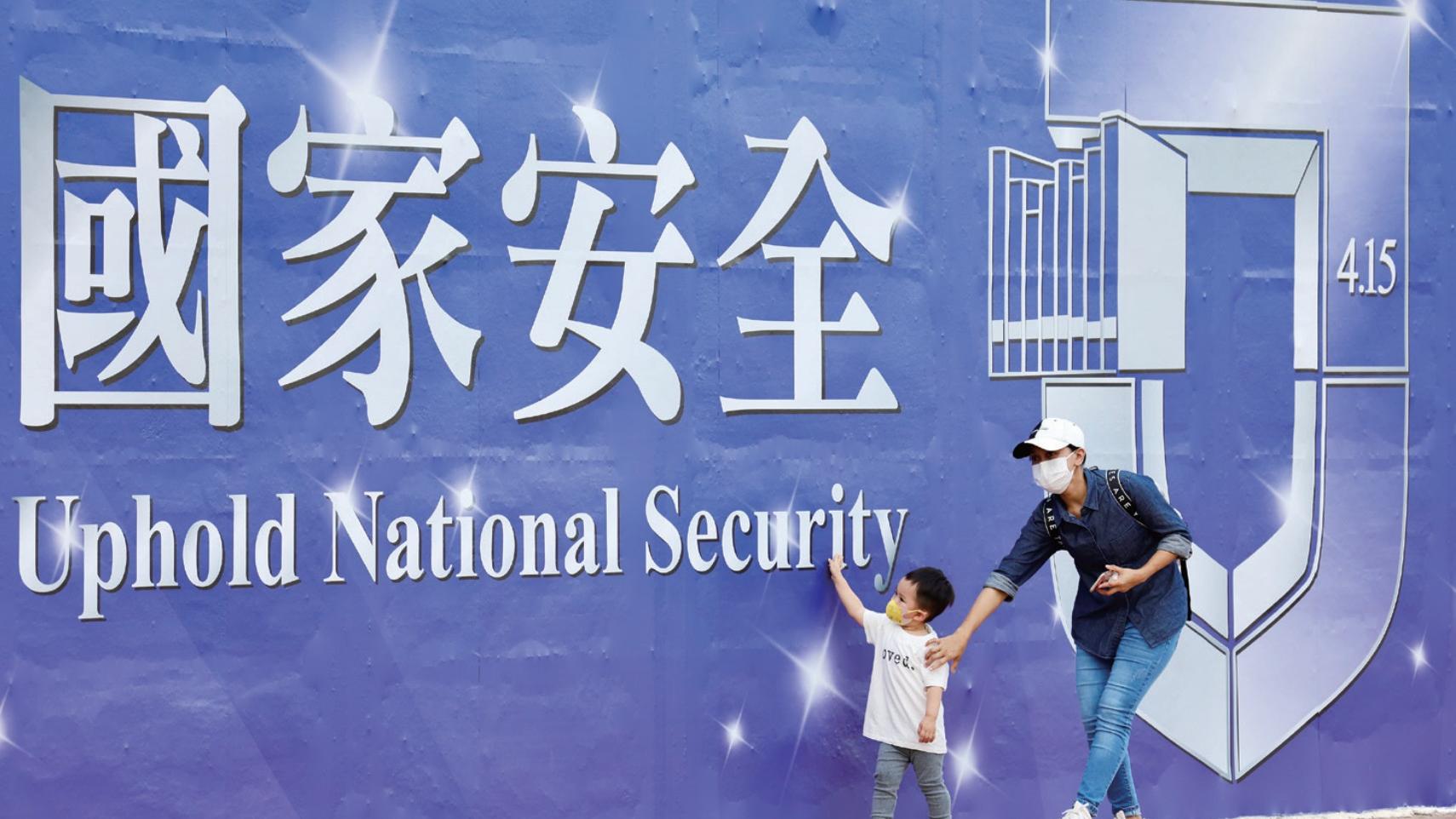 A child walks past a billboard promoting National Security Education Day in Central on April 14, 2022. (EDMOND TANG / CHINA DAILY)
A child walks past a billboard promoting National Security Education Day in Central on April 14, 2022. (EDMOND TANG / CHINA DAILY)
Xia Baolong, director of the Hong Kong and Macao Affairs Office of the State Council on Friday, spelled out the guiding principles in implementing the National Security Law for Hong Kong (NSL), stressing that the legislative intent of the law is to safeguard national security, “one country, two systems”, and to serve in the best interests of Hong Kong residents and the city.
Delivering a speech on Friday at a high-level forum held in Beijing and Hong Kong on the accurate implementation of the NSL, Xia said that as the Hong Kong Special Administrative Region enters a new stage, advancing from stability to prosperity, the situation concerning its national security protection is still grave, and anti-China activists and foreign forces have never stopped trying to contain the nation’s development.
"Since the implementation of the NSL, the systems and mechanisms for Hong Kong to safeguard national security have been constantly improved, and national security has been effectively safeguarded," Xia said.
The law aimed to provide the “missing link” in safeguarding national security in the city, said Xia, adding that it targeted a small number of people and protects the majority of Hong Kong residents.
He said that to ensure the sustained implementation of “one country, two systems”, the city must fully and accurately uphold the security law to provide a solid guarantee for its prosperity and stability.
Open development can only be achieved and sustained when national security is safeguarded. With the National Security Law, Hong Kong can be more confident, inclusive and well positioned to open up further to the world, said Xia Baolong, director of the Hong Kong and Macao Affairs Office of the State Council
The biggest trait of the NSL is that it adopts a double-track implementation mechanism, through which the HKSAR holds the major responsibility for safeguarding national security, as mandated by the central government through the NSL under “one country, two systems”, Xia said. The central government, acting as a safety valve, will handle problems that are out of the hands of the SAR.
ALSO READ: 'NPCSC interpretation key to accurate NSL implementation'
He added that the security law has an overriding effect on the local laws of the HKSAR. Accordingly, the NSL shall prevail where provisions of Hong Kong’s local laws are inconsistent with it. The HKSAR shall also take the initiative to amend and improve local laws to make them compatible with the NSL.
Responsibility for safeguarding national security falls not only on the SAR’s chief executive and its Committee for Safeguarding National Security, but also on its administrative organs, including the executive, legislature, judiciary, statutory bodies and advisory bodies, which are all obliged to assist with the committee’s work and respect its decisions, Xia said.
He added that wide participation from Hong Kong society is also vital to the security law’s successful implementation. “Everyone will benefit from the law. We should actively participate in and promote its protection, instead of being a bystander in the process.”
Open development can only be achieved and sustained when national security is safeguarded. With the NSL, Hong Kong can be more confident, inclusive and well positioned to open up further to the world, Xia said.
The city will have a much bigger part in the nation’s great rejuvenation if it can give full play to the NSL’s protecting role, he added.
READ MORE: NSL helps city claim world’s freest economy
Friday’s forum invited many prestigious scholars from the Chinese mainland and Hong Kong to share their insights into the future implementation of the NSL. Two seminars were also held to discuss the constitutional status and legislative intention of law, as well as the key issues concerning the law’s application.


